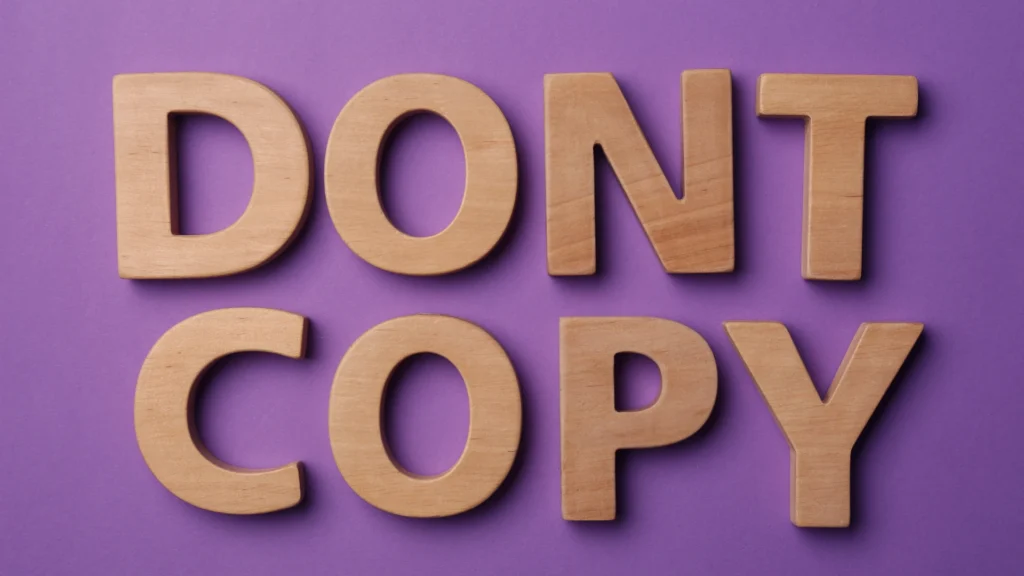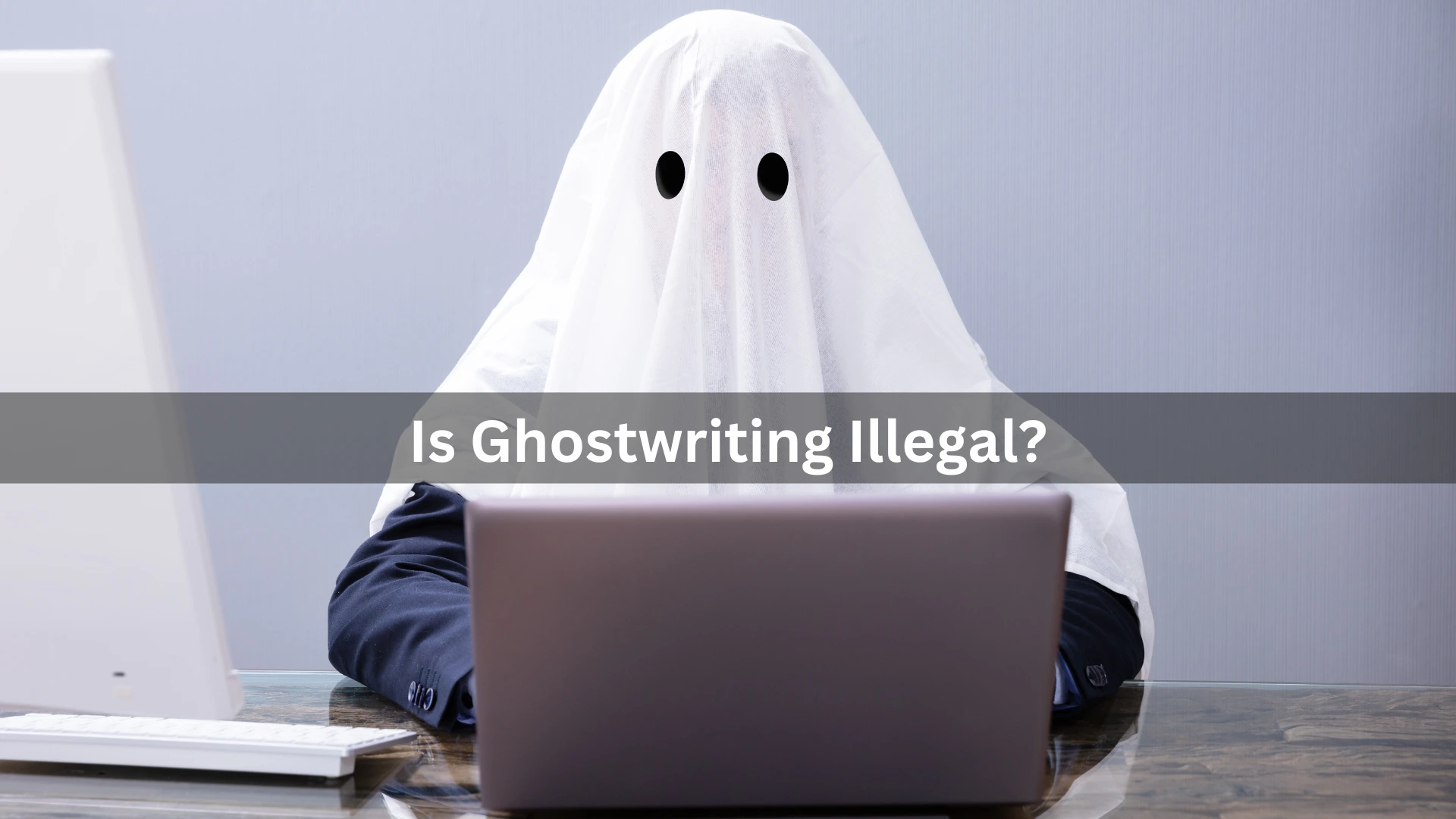Ghostwriting, a prevalent practice across various industries, plays a crucial role in enabling individuals and organizations to convey their ideas effectively.
As an experienced ghost-writing agency, we aim to shed light on the often-debated topic of whether ghost-writing is illegal. In this article, we will delve into the legal implications, ethical considerations, and the evolving landscape of ghostwriting.
Understanding Ghostwriting – Is Ghostwriting Illegal?
Ghostwriting refers to the act of writing on behalf of someone else, where the writer remains anonymous while the client takes credit for the work. This practice is widely utilized in industries such as publishing, music, film, and business, among others. A ghostwriter’s primary role is to channel the client’s voice and ideas into a well-crafted piece of content, ensuring the desired message is effectively communicated. If someone asks, Is Ghostwriting Illegal?, the answer is No!
Ghostwriting and Legal Implications – Is Ghostwriting Illegal?
When examining the legality of ghostwriting, it is important to differentiate between legal and illegal practices. Legitimate ghostwriting involves clear agreements and contracts, where both parties are aware and consent to the ghostwriter’s role. However, unethical and deceptive ghostwriting practices, such as forging authorship or engaging in copyright infringement, can lead to legal consequences.
To illustrate the legal concerns, consider the case of a bestselling author who hired a ghostwriter but failed to credit their contribution. In such cases, the ghostwriter could potentially seek legal remedies, asserting their intellectual property rights. Copyright infringement also poses a significant legal risk if the ghostwriter uses copyrighted material without proper authorization.
Ghostwriting and Plagiarism – Is Ghostwriting Illegal?

Plagiarism, the act of presenting someone else’s work as one’s own, is a crucial aspect to address when discussing ghostwriting. While ghostwriting itself is not inherently plagiarism, unethical practices can blur the line between the two. A responsible ghostwriter must ensure that their work adheres to ethical standards, avoiding any form of plagiarism.
From an academic perspective, ghostwriting for students raises concerns about academic integrity. Contracting a ghostwriter to complete assignments or write essays on behalf of a student is widely considered unethical and a breach of academic rules. Institutions have strict policies against such practices and impose severe penalties on students involved in ghostwriting-related misconduct.
The Legality of Ghostwriting – Is Ghostwriting Illegal
The legality of ghostwriting varies depending on jurisdiction and the specific circumstances of each case. While some countries have clear regulations addressing ghostwriting, others lack explicit laws on the matter. In the United States, for example, ghostwriting falls within the realm of contract law, where agreements between the ghostwriter and client determine the legality of the practice.
A notable case illustrating the legal complexities of ghostwriting is the memoir industry. Often, high-profile figures employ ghostwriters to narrate their life stories. As long as there is transparency and contractual agreements between the parties involved, ghostwriting remains a legal and accepted practice within the industry.
Exceptions and Grey Areas
In certain situations, ghostwriting may navigate through legal grey areas. Well-drafted contracts and agreements play a vital role in ensuring the legality of ghostwriting. When engaging in ghostwriting services, clients and ghostwriters should establish clear terms, including proper credit attribution and intellectual property rights, to avoid potential legal disputes.
Moreover, disclosure and transparency are crucial factors in ethical ghostwriting. Ghostwriters should strive to maintain honesty and integrity by clearly stating their role in the work, either through a note in the publication or a contractual agreement. This transparency allows readers or consumers to make informed decisions about the authorship of the content they engage with.
Ethical Considerations – Is Ghostwriting Illegal?
While the legality of ghostwriting may vary, ethical considerations remain constant. As a professional ghostwriter, I firmly believe in upholding high ethical standards to avoid illegal ghostwriting. It is essential to align with the client’s expectations while ensuring transparency and maintaining the integrity of the writing process.
Clients should have realistic expectations regarding the role of a ghostwriter. It is the responsibility of the ghostwriter to communicate their limitations and boundaries, ensuring that the client understands the collaborative nature of the process. By fostering open and honest communication, both parties can work together to achieve the desired outcome while upholding ethical principles.
Transparency and disclosure are paramount in professional ghostwriting. Clients should be encouraged to give proper credit to ghostwriters if they have contributed significantly to the work. This acknowledgment not only recognizes the ghostwriter’s efforts but also enhances the credibility and authenticity of the final piece.
Balancing ethical concerns with practical considerations is a delicate task. Ghostwriters must assess each project individually, considering factors such as the client’s requirements, contractual agreements, and industry norms. Striking a balance between fulfilling client expectations and adhering to ethical principles ensures a positive and sustainable ghostwriting experience.
Professional Standards and Ghostwriting
To navigate the ethical landscape of ghostwriting, various associations and organizations have established guidelines and ethical codes for ghostwriters. These standards provide a framework for professional conduct and encourage ghostwriters to uphold integrity, respect client confidentiality, and maintain the highest standards of professionalism.
Certification and credentialing programs for ghostwriters are also emerging, offering opportunities for writers to demonstrate their expertise and commitment to ethical practices. By acquiring certifications, ghostwriters can differentiate themselves in a competitive market and gain the trust of potential clients.
Conclusion – Is Ghostwriting Illegal?
In conclusion, the legality of ghostwriting is not a straightforward matter. While legitimate ghostwriting arrangements, backed by clear agreements and transparency, are legal and widely accepted, unethical practices can have legal repercussions. Ghostwriters must prioritize ethical considerations, maintain transparency, and foster open communication with clients.
As an experienced ghostwriter, I have witnessed the transformative power of ghostwriting when approached with integrity and professionalism. By adhering to ethical principles, ghostwriters can contribute to the creative process while preserving the authenticity and credibility of the final work.
The evolving landscape of ghostwriting necessitates ongoing discussions and evaluations of legal and ethical frameworks. With the implementation of industry guidelines, certifications, and increased awareness, the ghostwriting profession can continue to thrive while upholding ethical standards.
Ghostwriting, when conducted within legal boundaries and guided by ethical principles, remains a valuable service that helps individuals and organizations share their ideas, stories, and messages with the world while preserving the integrity of their voice.





et voluptas ut minus doloremque tempora quisquam cumque officiis consequatur aut natus. quo animi et maxime officiis tempora debitis eius temporibus odio praesentium voluptatibus sint recusandae et tenetur illum. similique quo perferendis atque vel enim dolor sunt veritatis nihil aut. aut quia quo est atque voluptatum ex earum ut velit neque expedita placeat dolores nemo nostrum sapiente adipisci libero.